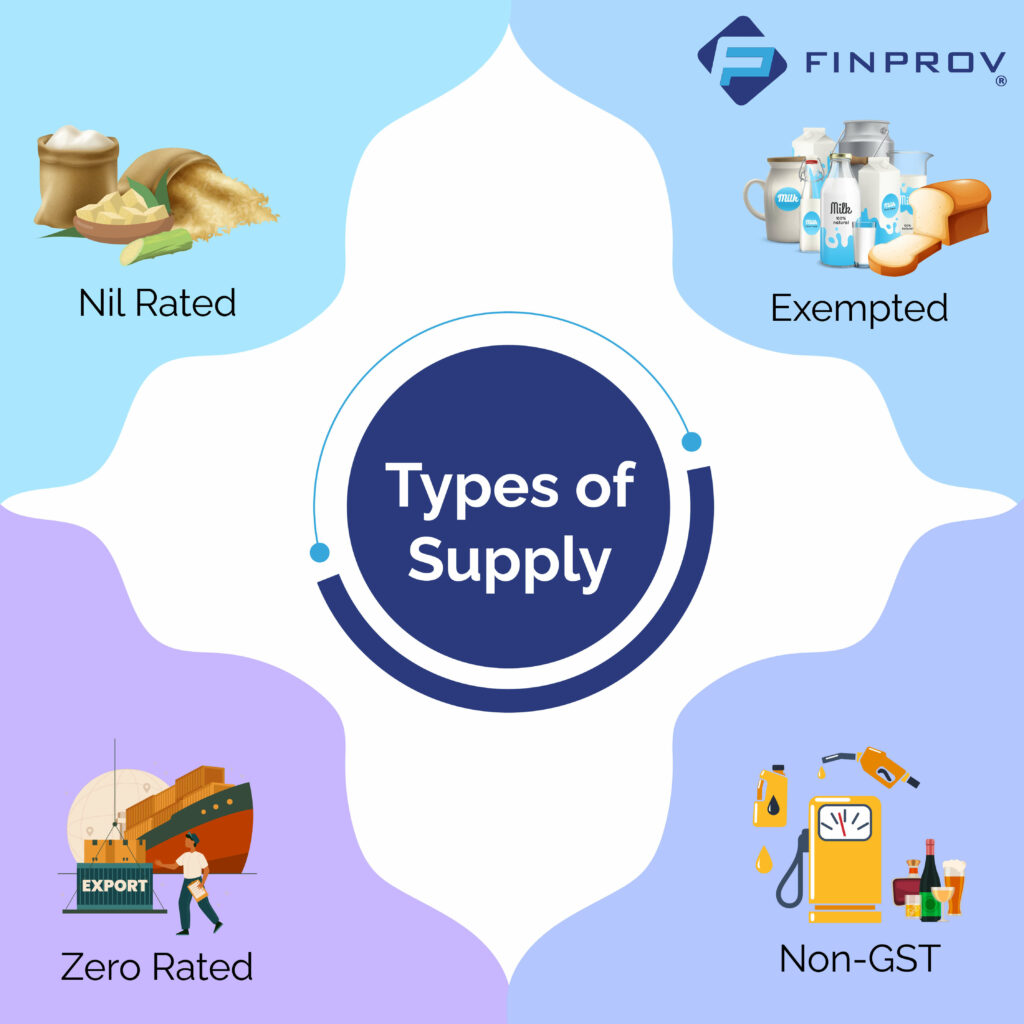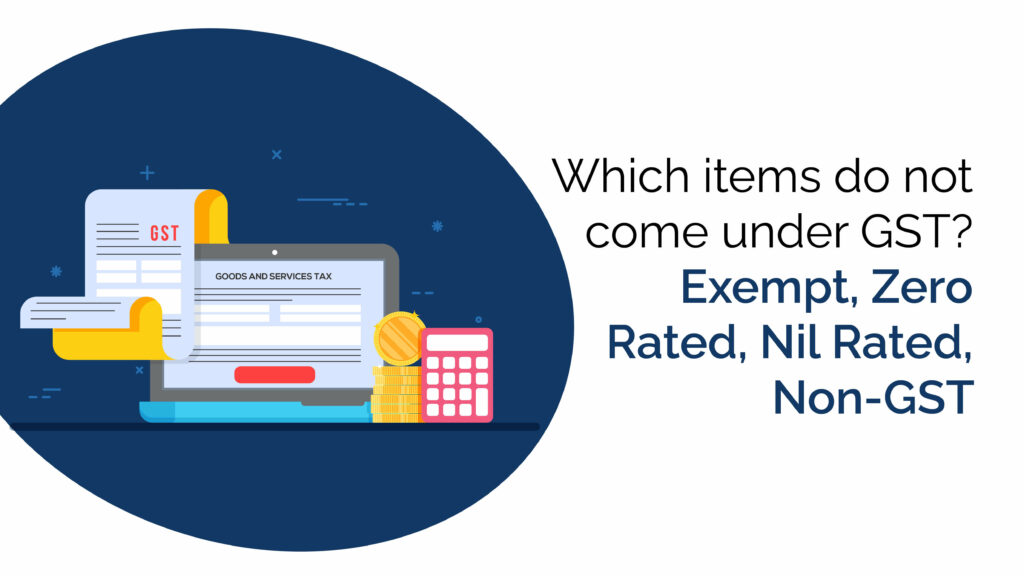The country witnessed the most significant tax change after implementing GST in 2017. The whole tax system came under the one big umbrella of GST. It eradicated all irrelevant taxes like entry, entertainment, state VAT, etc., that were prevailing in the country for a long time and was causing a lot of confusion. The government decided to implement GST after noticing a decline in the country’s financial status. GST simplified the entire taxing process and helped recover the country’s financial position. But even now, there are lots of matters or issues surrounding GST that remain unanswered. One such unanswered issue is the difference between Nil Rated, Zero Rated, Exempt and Non-GST.
After the GST implementation, the goods and services classified themselves into Nil Rated, Zero Rated, Exempt and Non-GST supplies. Although the result of all these supplies is the same, i.e. GST does not apply to the items listed under them, it is still essential to know the difference between them. It will help while filing the GST returns and claiming ITC.
Types of Supply under GST

Zero-rated supply
As per section 16 of the Integrated Goods and Service Tax Act, zero-rated supply refers to the export of goods or services or both or supply of goods or services or both to overseas and a special economic zone unit(SEZ) or special economic developer. Examples include exporting goods like mobile phones, TV etc., to other countries or extending your bookkeeping services to other countries.
In zero-rated supplies, the whole supply chain of a particular exported item is made tax-free. There is no tax burden on the supply’s input and output tax side. The primary purpose of the zero-rated supplies is to make Indian products competitive in the international markets. Zero-rated goods will add no taxes to the cost of exports.
The exporter can claim for refund as integrated tax or export without tax payments by using a bond or LUT for a refund on ITC-related taxes paid on goods and services used in making zero-rated supplies. No detailed list of goods and services is mentioned under the zero-rated supply, as these goods and services will be taxable when sold inside the country. GST law gives the provision for registered persons to claim for refund on zero-rated supplies even if the supplies come under non-taxable supply or exempt supply.
Nil rated supply
Nil-rated supply refers to the supply of goods and services, which applies 0% GST. Schedule 1 of GST law mentions a list of goods that come under nil-rated supply. Some examples are fresh fruits and vegetables, cereals, natural honey, salt, milk, human blood etc. There is no tax credit for goods and services in nil-rated supply for the registered dealer.
Non-GST Supply
Non-GST Supplies have to follow local state or other tax laws. Goods and services supply entirely out of the GST law come under Non-GST Supply. Petroleum products and alcohols that humans consume come under this category.
Exempted supply
Daily used items come under the exempted supply. Because they are products used daily, there is no GST for these items. Moreover, you can not claim ITC for such supplies. Examples include bread, milk, fresh fruits, curd, live animals(except horses), pooja items, etc.
The implementation of GST has led to a lot of confusion and speculations. Getting in-depth knowledge of GST is the only option to resolve these issues. Finprov Learning is providing a certification course on GST that covers all aspects of GST. They are the leading accounting training institute in the country that aims at creating financially educated citizens. To know more about the GST and other accounting certification courses, visit the official website of Finprov Learning.





